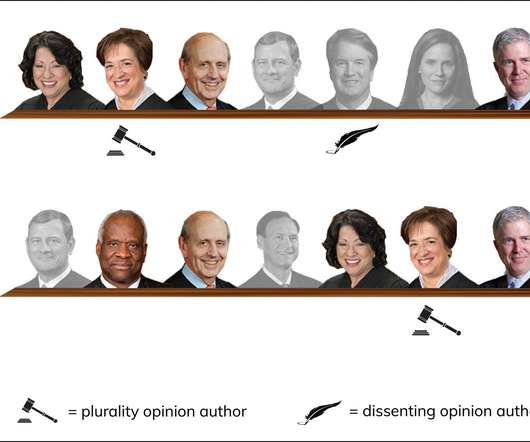US Supreme Court rules reckless offenses do not qualify as ‘violent felony’
JURIST
JUNE 12, 2021
had pleaded guilty to a felon-in-possession charge, and the government sought to apply the enhanced sentence under the ACCA. One of the three violent felonies the government alleged as a predicate to the ACCA charge was for reckless aggravated assault under Tennessee law. .” Petitioner Charles Borden Jr.
.png)













Let's personalize your content